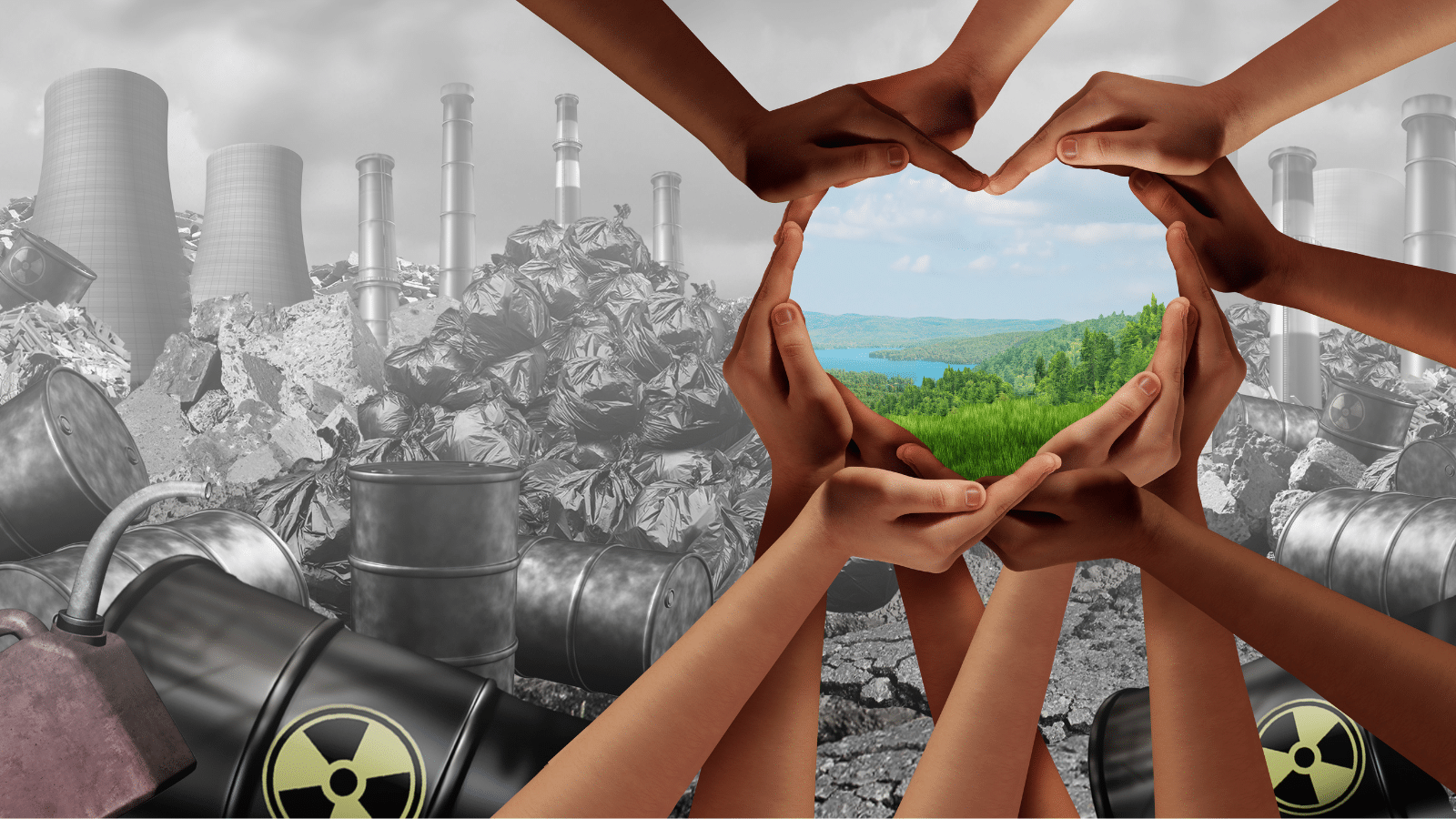Throughout history, there have been many people whose ideas and predictions were dismissed or ignored in their time but were later proven to be correct. These individuals often faced ridicule and opposition, but their perseverance and belief in their ideas ultimately led to their dismissal. Here are 18 examples of people who were right all along, but no one listened to them:
John Snow and the Cholera Outbreak

A devastating cholera outbreak swept through London in 1854. The prevailing belief was that the disease was spread through miasma or bad air. However, physician John Snow held a different theory: he suspected water contamination was the culprit. Undeterred by skepticism, Snow conducted a thorough investigation and identified a particular water pump as the outbreak’s source. While his warnings were initially dismissed, Snow’s work eventually led to the groundbreaking discovery of bacteria as the cause of cholera.
Nelson Mandela and the Dismantling of Apartheid

Despite facing brutal repression, Mandela never wavered in his belief in non-violent resistance. He understood that violence would only perpetuate the cycle of hatred and division, and he sought to dismantle apartheid through peaceful means. This commitment to non-violence ultimately won over many skeptics and contributed to the peaceful dismantling of apartheid.
Ferdinand Foch’s Warning About the Treaty of Versailles

In the aftermath of World War I, French Marshal Ferdinand Foch expressed grave concerns about the harsh terms imposed on Germany in the Treaty of Versailles. He prophetically declared that the treaty was not a path to lasting peace but merely a 20-year truce, a temporary respite before the resurgence of conflict. His warning proved tragically accurate as World War II erupted two decades later, fueled by the resentment and desperation of the treaty’s punitive measures.
Rosa Parks and American Civil Rights

In 1955, Rosa Parks, an African-American woman, refused to give up her seat on a bus to a white man in Montgomery, Alabama. Her defiance sparked the Montgomery Bus Boycott, a pivotal American Civil Rights Movement event. Parks’ courage and determination helped to bring about the end of racial segregation in public transportation.
Allan Lichtman and the Prediction of Trump Coming to Power

In political forecasting, Allan Lichtman stood as a lone beacon of accuracy, predicting that Donald Trump would emerge victorious in the 2016 election. In 1981, Lichtman, a historian, devised a system of 13 key factors to predict the outcome of presidential elections. Using this method, he has successfully forecast every election since then, except for the 2000 election.
David Bernays and Charles Sawyer Predicted the Deadly Avalanche

On May 31st, 1970, a catastrophic earthquake unleashed the deadliest avalanche in the annals of Yungay, Peru, tragically claiming the lives of over 25,000 people. Ironically, eight years before this cataclysmic event, mountaineers David Bernays and Charles Sawyer had sounded the alarm, alerting Peruvian authorities to the impending threat of a massive avalanche. Shockingly, their warnings were met with disregard and skepticism. The authorities went so far as to imprison the climbers for a brief period before releasing them only after they recanted their statements.
Robert Heinlein’s Prediction of The Cold War

In his prescient 1941 science fiction novel, “Solution Unsatisfactory,” Robert Heinlein depicted a world grappling with the aftermath of World War II and the emerging tensions between the United States and the Communist Eastern Bloc. The story, set decades after the war’s end, eerily foreshadowed the Cold War era, characterized by nuclear weapons and the fear of radioactive fallout. Heinlein’s foresight and ability to capture the essence of this brewing conflict are remarkable.
Mesaba Crew and the Titanic Iceberg

As fate would have it, a nearby ship, the Mesaba, radioed the Titanic with a dire warning about an iceberg in their path. However, the radio operator on the Titanic, overwhelmed by a backlog of passenger messages, failed to relay the crucial information to the captain. This tragic oversight set the stage for the disastrous collision between the Titanic and the iceberg, leading to the loss of thousands of lives.
Alexander Fleming’s Antibiotic Resistance Warning

Alexander Fleming, the renowned scientist who unveiled penicillin, the world’s first antibiotic, sounded a timely alarm in his 1945 Nobel Prize acceptance speech about the looming threat of antibiotic resistance if penicillin was indiscriminately used. Regrettably, his sage counsel went unheeded, and today, we face a global predicament of antibiotic-resistant bacteria.
.
Brooksley Born and the 2007 Financial Crisis

In 1998, Brooksley Born, a seasoned lawyer and financial regulator, raised the alarm about the perils of unregulated over-the-counter derivatives. Her astute proposal to subject these intricate financial instruments to regulatory oversight encountered vehement opposition from then-Federal Reserve chairman Alan Greenspan. Sadly, her prescient warning went unheeded, paving the way for the catastrophic 2007 economic crash that shook the world.
Edward Snowden

In 2013, Edward Snowden leaked classified information from the National Security Agency (NSA) that revealed the extent of the government’s surveillance programs. However, he was widely condemned as a traitor, and he was forced to seek asylum in Russia
Sinéad O’Connor and the Catholic Church

In 1992, Sinéad O’Connor, a courageous Irish singer, made a bold statement during her appearance on Saturday Night Live. As she sang a cappella rendition of Bob Marley’s “War,” she ripped up a photograph of Pope John Paul II, a powerful act of protest against the Catholic Church’s handling of child sexual abuse allegations. While her actions were met with intense criticism at the time, they have since come to be seen as a prophetic gesture, foreshadowing the ongoing scandals and cover-ups revealed within the institution.
Courtney Love and Harvey Weinstein

In 2005, ahead of her time, Courtney Love issued a stark warning to aspiring actresses, urging them to steer clear of disgraced Hollywood producer Harvey Weinstein. During an interview, she cautioned young women against attending his private parties at a prominent hotel. Unfortunately, her warnings were largely ignored until the #MeToo movement gained momentum in 2017, bringing Weinstein’s predatory behavior to light.
Wangari Maathai and Environmental Skepticism

Wangari Maathai was a Kenyan environmental and political activist who founded the Green Belt Movement, which has planted over 50 million trees in Africa. She was awarded the Nobel Peace Prize in 2004 for her contributions to sustainable development and peace.
George Washington Cautioned About The Danger Of Political Parties

In his valedictory address, George Washington, the esteemed first president of the United States, presciently warned against forming political parties, expressing concerns that they would foment division and erode the nation’s strength. Regrettably, his sage counsel was disregarded, and today, we find ourselves grappling with a deeply polarized political landscape.
Roger Boisjoly and the Challenger Disaster

In 1985, Roger Boisjoly, an engineer involved in the Space Shuttle Challenger project, raised concerns about the potential failure of O-rings in cold temperatures. Despite his warnings, his apprehensions were disregarded by NASA officials. On January 28th, 1986, as the world watched in dismay, the Challenger tragically exploded mere seconds after launch, claiming the lives of all seven crew members on board.
Galileo Galilei

In 1610, Galileo Galilei used a telescope to observe Jupiter’s moons, proving that the Earth was not the center of the universe. However, the Catholic Church condemned his ideas and forced him to recant his findings.
Stephen Hawking

In his 1988 book “A Brief History of Time,” Stephen Hawking explained the origins and evolution of the universe in a way that was accessible to the general public. However, some scientists initially criticized his book for being too simplistic.
21 Things That Shout You’re “Lower Class” According To Men

Class wars creep up in all aspects of life, including dating. We take a look at the things that men believe are telltale signs that you are lower class.
21 Things That Shout You’re “Lower Class” According To Men
Boomer Zoomers vs. Millennial Meh: 10 Cars the Older Gen Loves but Millennials Just Can’t Stand

The change in the automotive industry has been incredible over the year. Baby boomers born between 1946 and 1964 can’t get enough of the cars listed below, as muscle cars emerged in the 1960s, and new technologies appeared in the 1970s and 1980s. You can imagine why boomers genuinely appreciate these vehicles.
Boomer Zoomers vs. Millennial Meh: 10 Cars the Older Gen Loves but Millennials Just Can’t Stand
Across the Pond Disdain: 18 Horrendous American Habits Foreigners Just Can’t Stomach

There is a lot to love about America, from the bright lights of New York to the incredible breakfasts, but foreigners also dislike many things. We look at everything from poor public transport to an intimidating tip culture, sharing 18 things that America could be better at.
Across the Pond Disdain: 18 Horrendous American Habits Foreigners Just Can’t Stomach
Out with the Old: 18 Gen X Fads That Millennials and Gen Z Just Can’t Vibe With

While some old habits die hard, there are some things that Gen X need to eliminate as they are no longer relevant.
Out with the Old: 18 Gen X Fads That Millennials and Gen Z Just Can’t Vibe With
18 Unpleasant States You Might Want to Skip on Your Next Trip

When thinking of America, we don’t expect there to be boring or unpleasant places to visit. We see all the different states on the TV, and they show the best parts. However, there are some states you won’t want to visit, and you should brace yourselves if you ever happen to stumble into them.
18 Unpleasant States You Might Want to Skip on Your Next Trip






